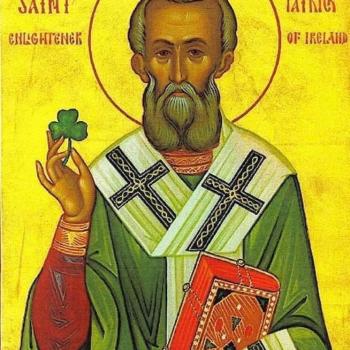In the distant days, there was a boy becoming a man. Like most young men, he looked around to see what he might be. And, like so many such young men, decided he would go to war. But, unlike many such young men, he had no dreams of Odin and Valhalla. No, his dreams lay elsewhere, lying in Sessrumnir with the goddess Freya. She who chooses half the slain herself, and for herself, and does the choosing first: he wished to wake in her hall after he had earned his end.
So he worked to be worthy of her choice. He sweated ceaselessly over his swordwork, learning stratagems to complement his strength, which grew slowly but steadily with the length of his beard. The local chieftain saw him, said he would be fearless, would be fearsome, would be fine when his time came.
And as he grew, young women saw him, too, which was no surprise to anyone. He wasn't interested. Seeing Freya in his dreams, these earthly girls could not compare, or so it seemed to him. He knew the goddess they could just aspire to emulate. Still, some were quite persistent. Still, he pushed them all away.
One day when he was grown, he boarded ship and went to war. He took his turn at oar and sang the songs of Odin, but because that's what was being sung across the ship. He closed his eyes and saw again what he desired, and pulled the harder for it, eager to arrive. He couldn't wait to be in battle.
He survived the fight. A war was more and less than poets said: all cloaked in smoke and vapor, and yet clear as crystal dawn. He left the dead behind him, food for ravens.
And a battle came again, and then again, and he became as he had wished and worked to be. He had a reputation: fearless, fearsome, final for so many he would face.
So years went on. He went from young to not-yet-quite-so-young, acquiring scars along the way, and tempering the beauty women saw in him, though all still wanted him. He passed from kingdom on to yet another court, and yet another princess, and a queen or two, invited him for private audience in private places. These were turned away, as were all the rest. This earned him some disfavor, and unfavorable places in the lines of battle when a woman he had spurned spoke ill of him to father, husband, king. Results were still the same: he went on fighting, went on winning, went on dreaming of the goddess Vana Freya.
The logic of success was catching up with him. If he was best of all the warriors, then when or how would he be harvested? His reputation went before him, killing many in their minds when they had never met him yet or even seen his steel. He'd die in bed because no better man could best him. Then, in yet another battle, facing three and laughing in their faces, something snagged his ankle. Down he went, they set upon him, and the world went dark.
He awoke some time later. The sun was bloody red on the horizon; ravens worked at other bodies on the field. He felt more pain than he had ever known. He knew that, drop by drop, his life was leaving him. Then dreamlike came a shimmer in the sky, and then a tear, and through that opening they came: beautiful women on heavy horses, charging, screaming. They grew near him. One reached down. There was a tug, and then the world went dark again.
He awoke again. The pain was leaving him, and left him feeling whole. He sat up and looked around a high-roofed hall. Shining shields made up the roof. He saw the high seat; saw the many doors. There was no need to count: he knew the number he would find. This was Valhalla.
He was in the wrong place.
How had this happened? He had worked so hard, and waited long. He knew that few would ever see inside of this great hall, and being there was honor in itself, but what he sought was something softer.
Food and drink were brought; he tried to want it. Then the headman of the hall called all to arms, and all strapped on their swords. Some shouldered other weapons; what they were and how they worked he wouldn't know. All formed in ranks and marched out all the many doors. Yes, all so many doors, each wide enough for all so many men, and women, too, a few. Out on the nearby plain they went, to practice. He went with them, and he practiced, too. They practiced on each other. War had never been like this for him, where everyone was just as good as he, and maybe some were even better.
Every day, it went like this: awake at morning, eat and drink, then go and fight. At evening came the women, workers of great magic, mending muscles, skin, and senses back into himself, and making whole the bones. Then eat and drink again, carouse with others and what company would come. There was always company. And then came sleep, and then another day.





